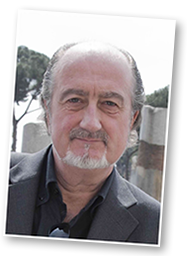Having published The Spaniards and having been asked by Penguin to produce a sequel, The New Spaniards, it seemed only natural, when the Guardian asked me to go to Italy back in 1994 that I should think of writing a similar book on the Italians. Yet, after more than five years based in Rome, I moved on to Berlin with not a word written, or even a chapter planned.
My books on Spain sprang from a desire to explain the transformation of a society that had undergone – and was still undergoing – radical change. Italy had seemed to be on the verge of just such a transformation when I arrived in the wake of the so-called Clean Hands anti-corruption drive that brought down Italy’s post-war political order. But the changes proved transitory. In fact, the contrast became striking: while the Spanish were rushing headlong (often with characteristic recklessness) into the 21st century, the Italians seemed determined to stay rooted in the 20th, and particularly the part of it that had yielded their economic miracle. So, if I was to write a book on Italy it was going to have to be different from The New Spaniards – more timeless and interpretative. And the plain fact was that I did not feel I was up to the task.
While I was based in Rome in the 1990s, a lot of my time was spent writing about – and going to – the others countries of the Mediterranean. What is more, and in ways that I have tried to explain in The Italians, Italy is a country of secrets and illusions; of layered meanings and elusive truths. Any foreigner who lives in Italy will sooner or later encounter a disconcerting surprise – something that, for better or worse, turns out to be very different from what he or she had assumed. I decided that, for as long as I myself continued to experience those surprises, I would not embark on the writing of the book I had in mind.
Eventually, however, they tailed off and I set myself to writing The Italians. What you will find between its covers is the book I would like to have been able to read when I first came to Italy – one that gave me some clues to understanding what I have come to see as Europe’s most intriguing society.

